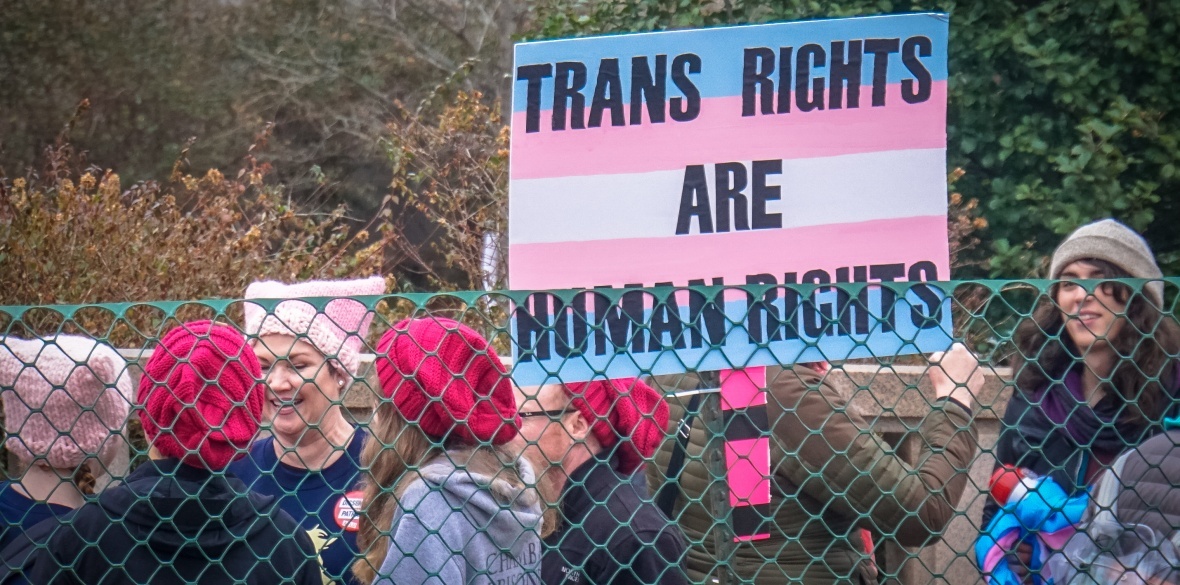CONTENT WARNING: mentions of transphobia and anti-trans violence
I found out about the lawsuit being filed against Tavistock last year whilst flicking through abandoned newspapers in the fine art studios. My stomach felt like it had fallen into an abyss; what started as a productive day was now a day I quickly wanted to be over. This is the reality of transgender existence. You are getting on with your boring daily life and suddenly, some irrelevant newspaper columnist who has probably never met a trans person in their life wants to write you out of existence.
The lawsuit argued that trans people under 16 were ‘unlikely’ to be able to give informed consent to puberty-delaying treatment due to potential side effects (mainly potential loss of fertility) and thus should not have access to treatment at all. The lawsuit was spearheaded by Keira Bell, a woman who had transitioned to male in her adolescence and then ‘detransitioned’ back to female, and her lawyer, Paul Conrathe. Bell argues that clinicians at the Gender Identity Development Service (GIDS) at the Tavistock and Portman NHS Trust did not challenge her assertion that she was male and should have done so instead of ‘forcing’ her to go through male puberty which she was ultimately unhappy with.
Whilst I feel for Keira, because I know first-hand what going through a puberty which is incompatible with your true identity feels like, what I hate most about the media reports surrounding the lawsuit is that it contributes to the vile narrative that the Tavistock clinic hands out puberty blockers and hormone therapy to adolescents like skittles. As an actual, real-life transgender person who was under the care of the same service as Bell, this could not be further from the truth.
At every point in my journey with GIDS, the conversations with my clinicians centred around the importance of affirming my identity without over-medicalising it and thinking through the psychological facets of my identities. When discharged, the reassurance and space given to me by GIDS were what made me into the assertive, fully rounded and compassionate person I am today. Not only did I develop psychologically, but the service also gave me the sharp critical thinking skills that are necessitated by a culture which demands attention 24/7. This culture is susceptible to moral panic, yet the service I received at GIDS gave me ways to think past it.
My case is not rare, almost every other trans person I know had to wait painstakingly until their early twenties to access any gender-affirming care. So why are stories of detransitioners the only ones being told at such disproportionate scales?
Contrary to popular belief, puberty-blocking drugs are not ‘experimental’ and are mostly prescribed for cisgender teens entering precocious puberty. I seem to know every trans man within a 20-mile radius of the M25, and ironically the only person I know to have been prescribed puberty blockers is my friend Cam, who is a cisgender man. He’s around 6’4, having experienced a growth spurt so rapid in his early adolescence that he was in near-constant bone pain and, at risk of growing to a height that his body could not support, he was temporarily prescribed hormone blockers to slow his growth. Where were Bell and Conrathe then, arguing that he should have been made to grow to almost 7-foot-tall and be in constant pain because he was too young to consent due to the risks to his future fertility?
The justification of denying medical care based on dubious concerns about future fertility has startling roots in misogyny. The fact that cis women under 30 must still get permission from their husbands to be permanently sterilised shows that these legal frameworks care more about the feeble promise of pregnancy over the actual, material needs of real people in the present. In the same way, this fetishisation of prospective ‘fertility’, particularly when attached to genderqueer adolescents coded as female, acts as a method of control over their bodies and autonomy, denying them of both. The self-proclaimed ‘feminists’ who support the ruling of the High Court, who claim to be protecting girls from the harmful ‘transgender cult’, are reducing these same children to their sexual organs.
Abigail Shrier recently released a book about the higher numbers of adolescents coming out as trans males called ‘Irreversible Damage: the transgender craze seducing our daughters’. The front cover is an image of a cartoon Victorian doll with a hole where her abdomen should be. Shrier ironically reduces the same people she is apparently ‘protecting’ into gouged out girl dolls, objects who exist to be ‘seduced’ and have things done to them rather than being agents of their own lives. This sounds more like something from The Handmaid’s Tale than any actual feminist literature.
Whilst Keira Bell gets to assert her identity as a woman and her regret at experiencing male puberty, the same lawsuit that she argued for will force young trans girls into experiencing male puberty that they do not want, increasing their risk of suicide and self-harm. This ruling on puberty blockers is a slippery slope to the outright denial of the vital gender-affirming healthcare for trans people and is a bleak reminder that there is a long way to go until we have basic human rights.
To the cis people reading this: ask your trans friends how they’re doing. Drop them a text, buy them a drink – God knows we need it.
By Christos Minas
Featured Image Source: Morning Star Online

